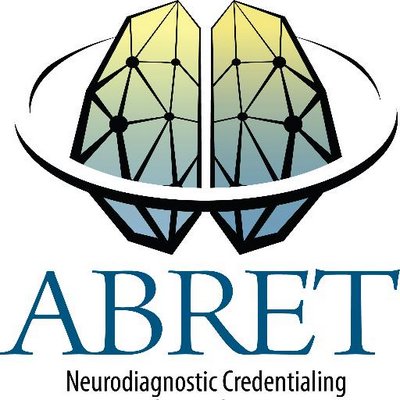FAQs
Get Answers

Going back to school is a big decision
We expect you to have questions
Here are answers to some of the questions you may have about your experiences at the Neurodiagnostic Technology Institute.
About the Profession
Neurodiagnostic Technology is a broad term used to describe several categories of neurological testing. It includes Electroencephalography, Long Term Monitoring (LTM), Polysomnography (PSG), Evoked Potentials (EP), Intraoperative Monitoring (IOM), and Nerve Conduction Studies (NCS).
"EEG" is an abbreviation for the term Electroencephalography which is the study of electrical activity within the brain. Electroencephalography is of Greek origin and literally means:
Electro = electric
Encephalo = brain
Graph = writing
However, it is commonly used to refer to the actual brainwave recording or a neurodiagnostic technology group or department. Example: "Call EEG to get an EEG on this patient."
The nervous system functions when one nerve cell successfully communicates a message to another nerve cell. These messages carry electrical charges which can be measured and recorded by special equipment connected to electrodes placed on the scalp.
According to the O*NET Online Summary Report for Neurodiagnostic Technologists, neurodiagnostic technology has been categorized as a field that “is expected to grow rapidly.” With a projected growth rate of over eight percent (8%), it has been estimated that almost 28,000 job openings will be created before 2029. This is remarkable growth when you consider that the Department of Labor has forecasted overall job growth to be at eleven percent (11%).
As of February, 2023, a national search for “EEG” in the job sites listed below returned the following results:
SimplyHired.com returned over 1,018 results.
Indeed.com returned over 1,630 results.
ZipRecruiter returned almost 3,931 results.
Linkedin.com returned over 3,958 results.
* Some of the results displayed may include physician and/or management positions for which you may not be qualified.
According to the ASET 2022 Neurodiagnostic Profession Salary & Benefits Report, the national average salary for Neurodlagnostlc Specialists I or II with two years or less experience is $57,572 ($27.68 hourly). Factors that can influence the rate of pay includes: geographical region, the type and size of the facility, and the individual’s registry status.
EEG Technologists are not currently required by a governing institution to be credentialed, however, the hiring company may require it.
About the Program

Additionally, NTI is recognized by The American Board of Registration of Electroencephalographic and Evoked Potential Technologists (ABRET) as an education provider of a Pathway II program to become a Registered EEG Technologist. NTI graduates are immediately eligible to take the ABRET EEG Registry Exam.

Feel free to contact us at your convenience by:
Phone: 407.601.7832
Fax: 407-674-7988
Email: Click Here
Address: Neurodiagnostic Technology Institute
805 Oakley Seaver Drive, Suite 103
Clermont, FL 34711
You will work with a team of faculty and administration who are committed to seeing you succeed as a student by ensuring that you understand the materials and master the skills you need.
Courses are a combination of online theory and hands-on experience where you will work with real patients under the supervision of a Registered EEG Technologist in a neurological facility.
You decide when you want to learn. Courses are online – convenient, anytime and anywhere there is an Internet connection.
When you successfully complete the program you will be prepared to take the American Board of Registered Electroneurodiagnostic Technologists (ABRET) examination to become a Registered Electroneurodiagnostic Technologist.
What kinds of people are most successful at Neurodiagnostic Technology Institute?
The biggest requirement is a desire to learn and have an interesting, challenging, and rewarding career in healthcare. Students who are the most successful share the following traits:
- Self-motivated
- Disciplined
- Independent learners
- Knows how to manage time
On average you will need to allocate approximately 25-28 hours per week to complete the program.
- 3 hours per course per week to attend classes, participate in interactive discussions, and to complete your assignments and tests.
- 16 hours for your on-site clinical externship experience.
The course schedules are designed to make your studies as practical and convenient as possible.
Classes are designed to provide weekly structure to the material and offer opportunities for you to engage with your classmates and instructors.
You set the hours when you are available to perform your externship at the clinical site.
Yes. Instructors will gladly answer your questions and may pair you up with another student who is also able to help.
Students need to have average computer and typing skills and be able to perform the following tasks:
Search the Internet through a browser such as Firefox, Chrome, or Microsoft Internet Explorer
Create, send, and receive e-mails with attachments
Have a working knowledge of Microsoft Office – especially Word
Students are encouraged to begin building their professional networks with their professors and other students.
Our courses are designed to encourage discussion and collaboration with fellow students. Students have the opportunity to meet online for study groups and support without requiring instructor assistance.
Students can log in to the Student Portal at any time that is convenient to them.
Tuition is $9,500. Financial assistance is available to those who qualify. Please contact the Admissions Department for more information.
